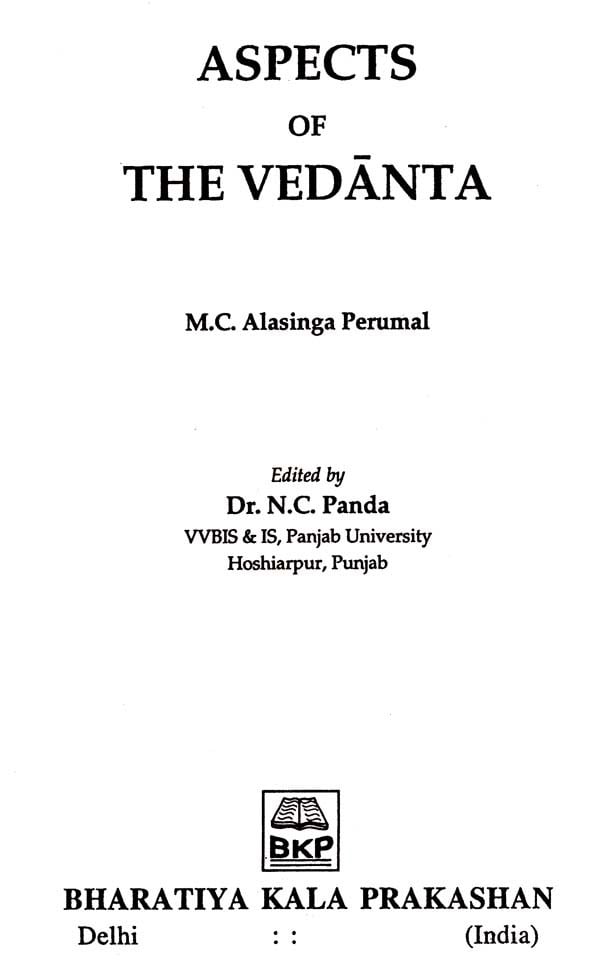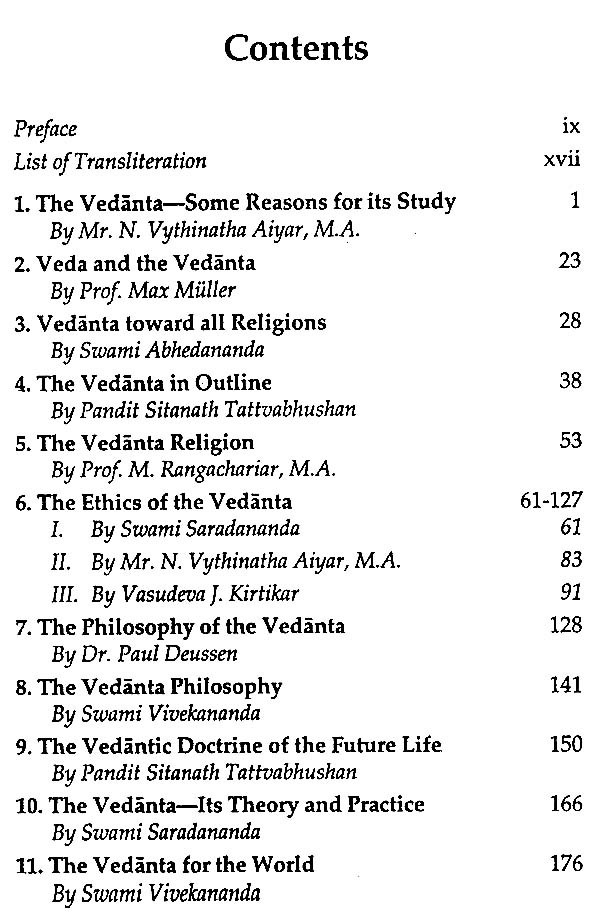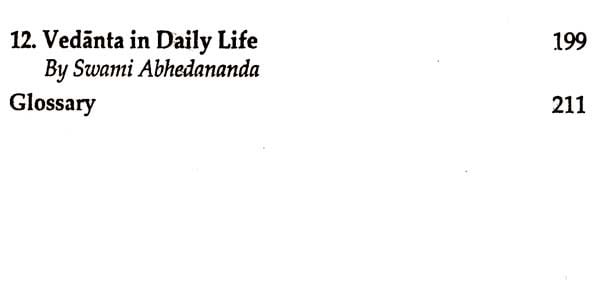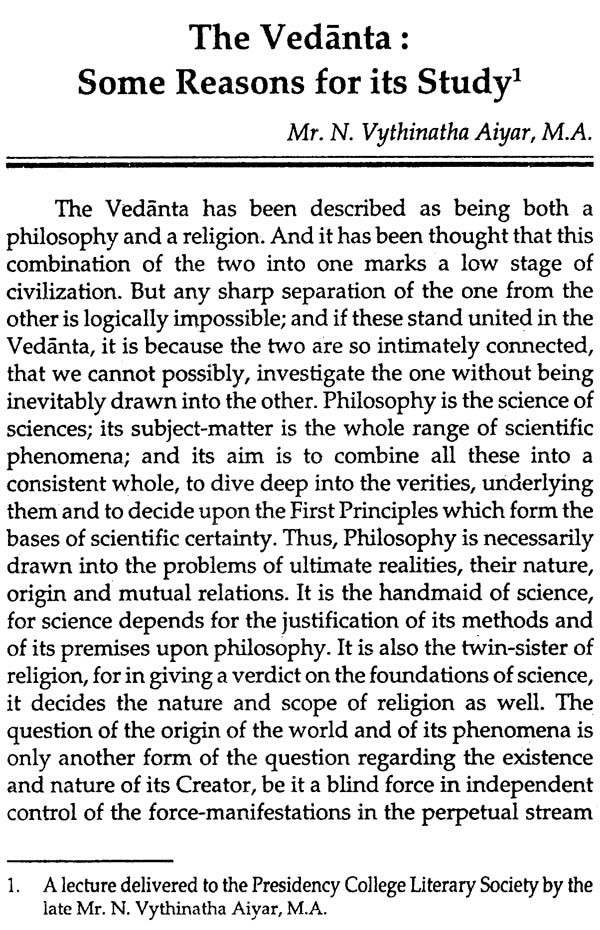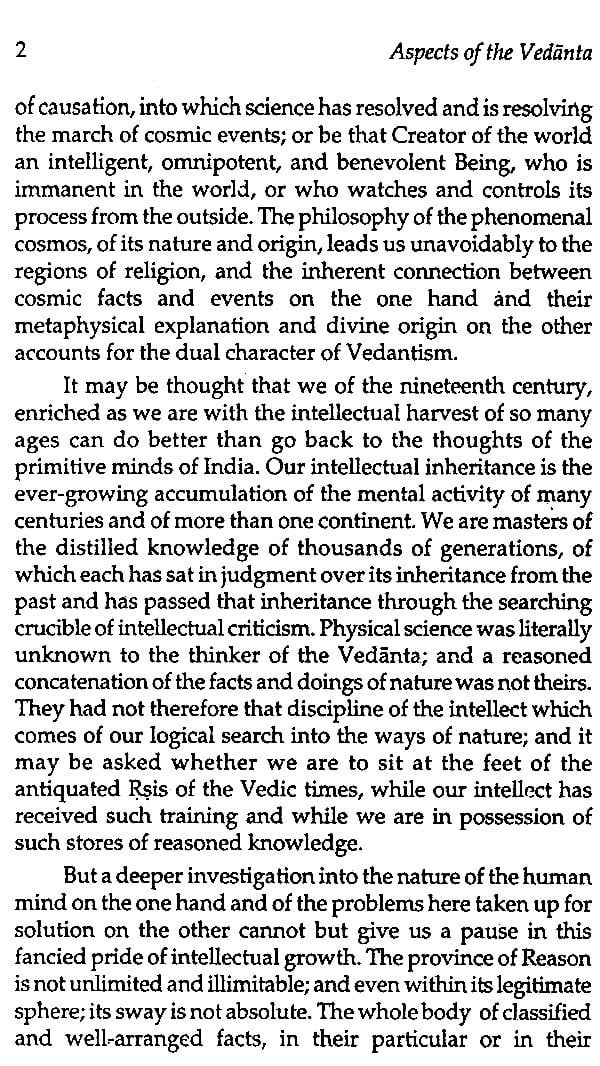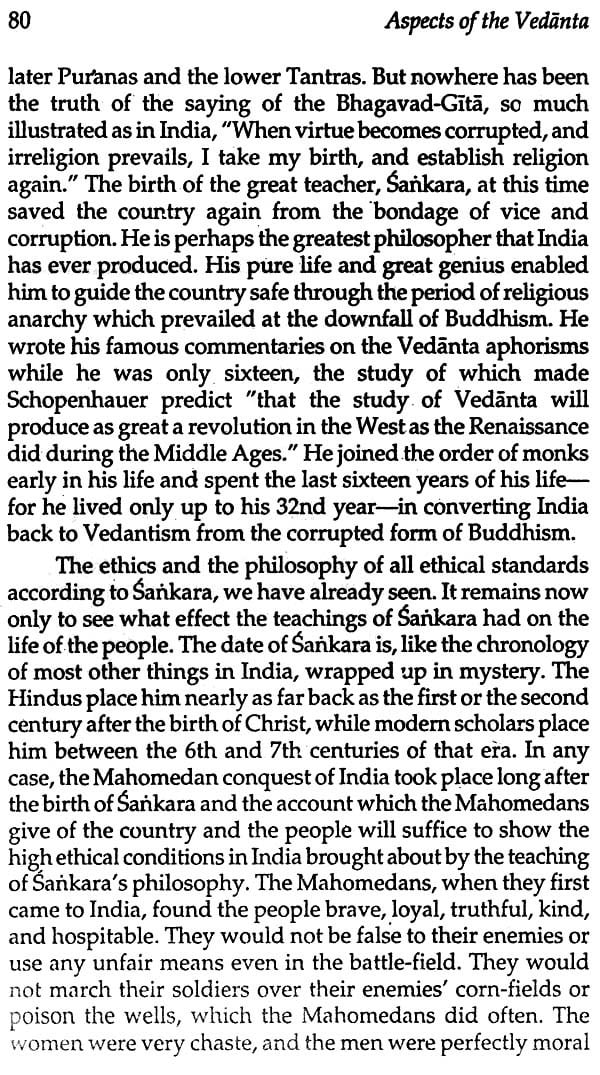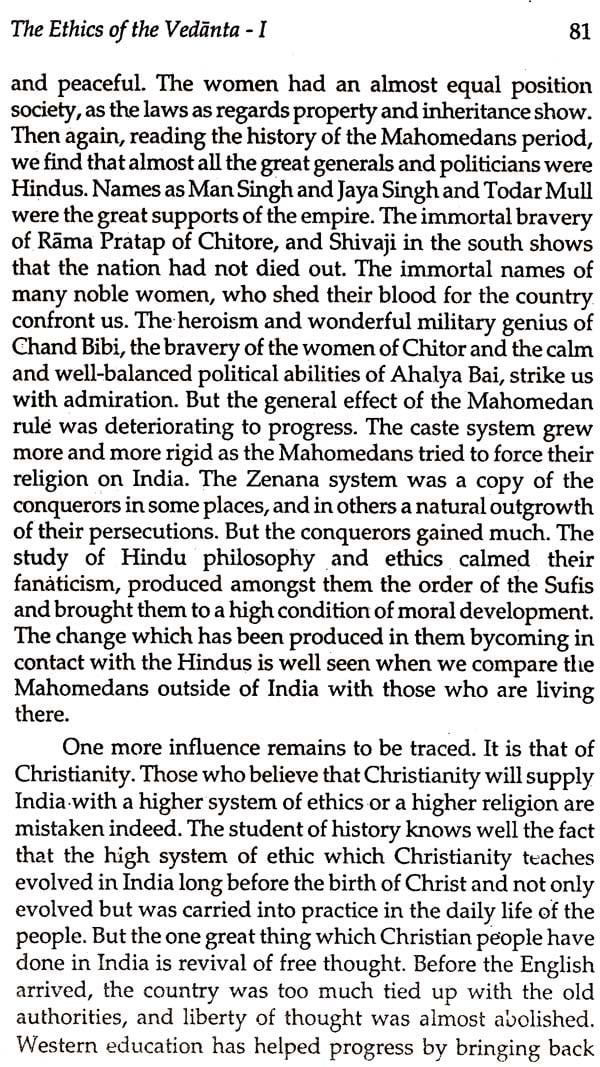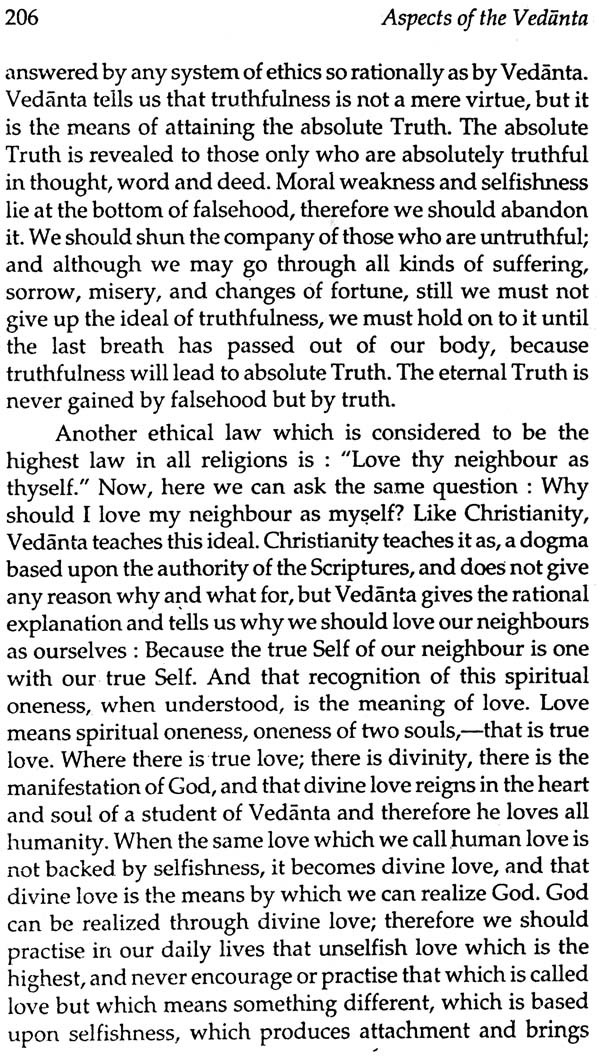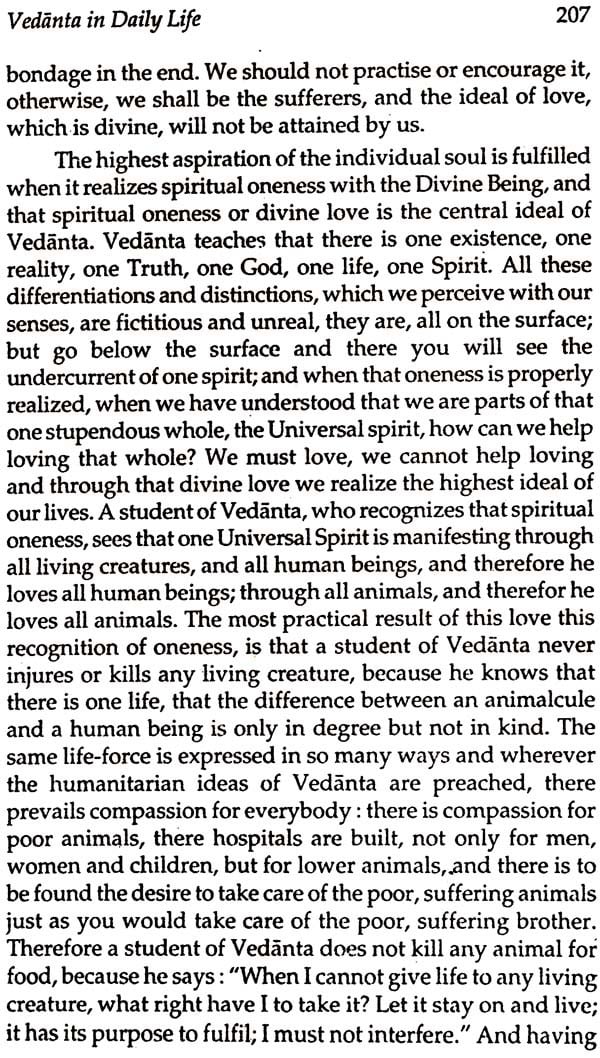
Aspects of the Vedanta
Book Specification
| Item Code: | AZE676 |
| Author: | M.C. Alasinga Perumal |
| Publisher: | Bharatiya Kala Prakashan |
| Language: | ENGLISH |
| Edition: | 2009 |
| ISBN: | 9788180902260 |
| Pages: | 240 |
| Cover: | HARDCOVER |
| Other Details | 9.00x6.00 |
| Weight | 390 gm |
Book Description
The work entitled 'Aspects of the Vedanta' is a collection of articles, written various eminent scholars of Sanskrit and Philosophy. The articles are now revised and further added with diacritical marks for proper reading / pronunciation of the Sanskrit terms. Besides, Glossary and Index are also appended in the book for the benefit of researchers and general readers of Philosophy and Religion.
After graduation from Utkal University and Post-graduation and M.Phil. Degrees from Kurukshetra University, he obtained Ph.D. degree in Vedic Studies from Panjab University, Chandigarh. In addition to these Dr Panda also qualified in other Indological branches like Buddhism (Acharya), Kashmir Saivism (M.Phil.), Indian Philosophy (Acharya), Ayurveda Ratna and C.C. in German.
Dr Panda is the Joint Editor of Vishveshvaranand Indological Research Journal. As an ardent student and a successful researcher of Indology he has contributed numerous learned Research papers, and written and edited some valuable works, viz.:
1. Perspectives of Indian Thought, Upadesasahasri (Revised & Edited), Buddhism (Text with Eng. tr. in two Vols. Ed., Kalātattvakośa Lexicon, Vol. VI (Ed.), Samkhyakärikā (Ed.), Aspects of the Vedanta (Ed.)
The Upanisads may be ragarded as the end of the Vedas also in the sense that they mark the culmination of the Vedic speculation. In the Upanisads themselves we are told that even after the study of the Vedas with other branches of learning a man's education is not complete till he receives instructions in the Upanisads. Besides, the Upanisads were regarded as the inner or secret meanings of the Vedas, hence their teachings were sometimes called Vedopanisad or the mystery of the Vedas.
The sages of the Upanisads claimed that they had discovered the gist or purport of all Vedic teachings in the knowledge of the absolute, of whom the gods worshipped by the authors of the mantras, as well as all objects in creation, were, they taught, names, forms or relative manifestations. The final end of all Vedic discipline were, they thought, union with Brahman, the Absolute Being.
**Contents and Sample Pages**
